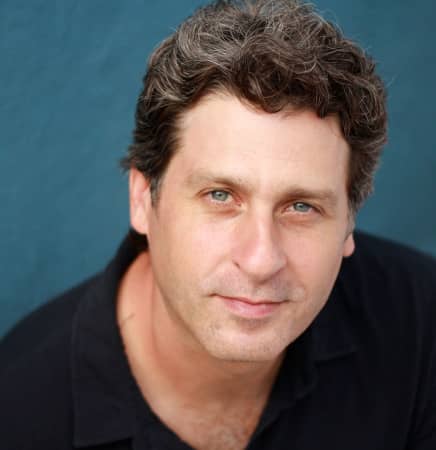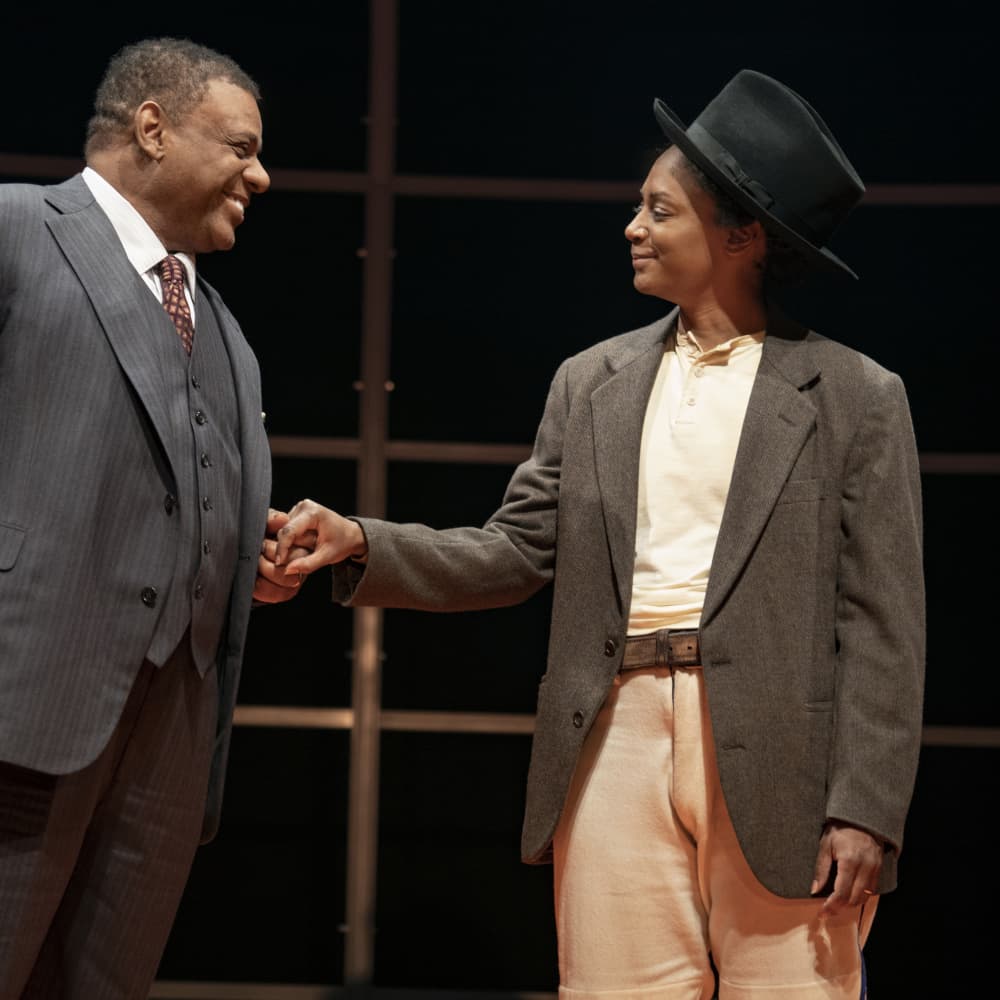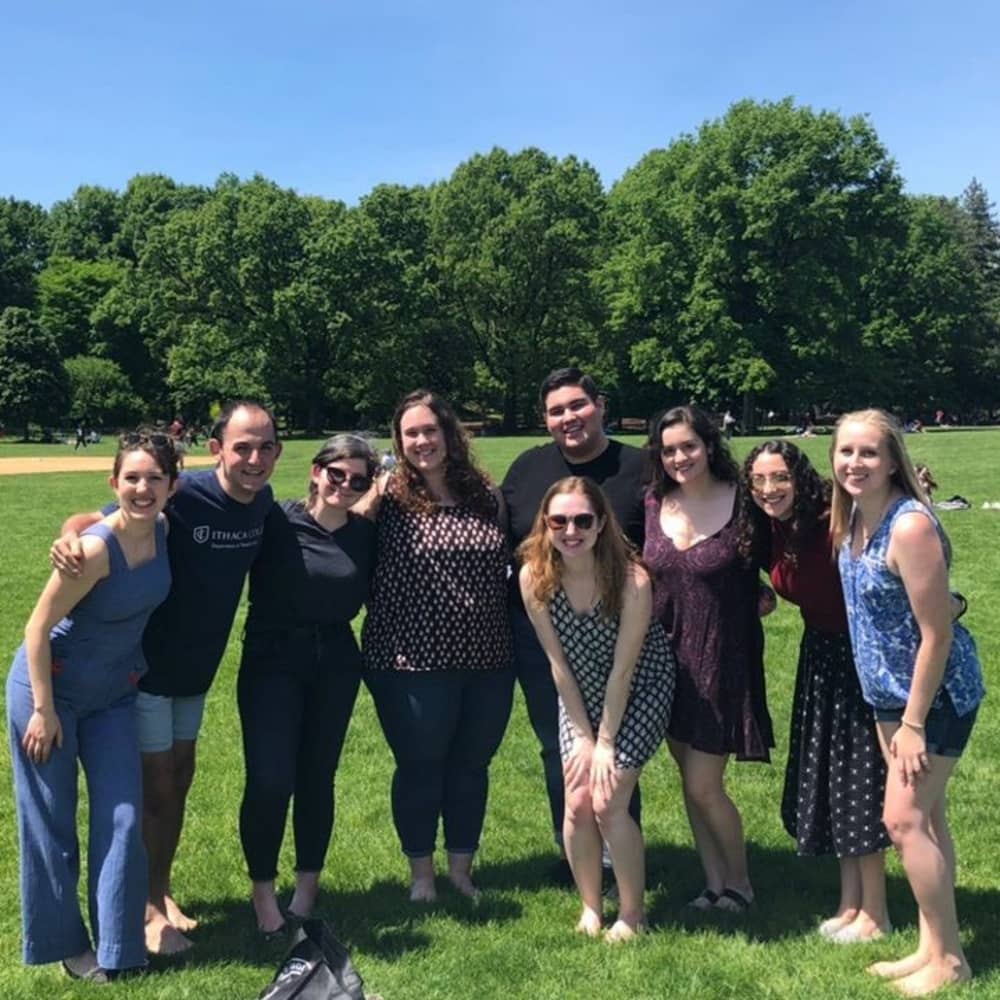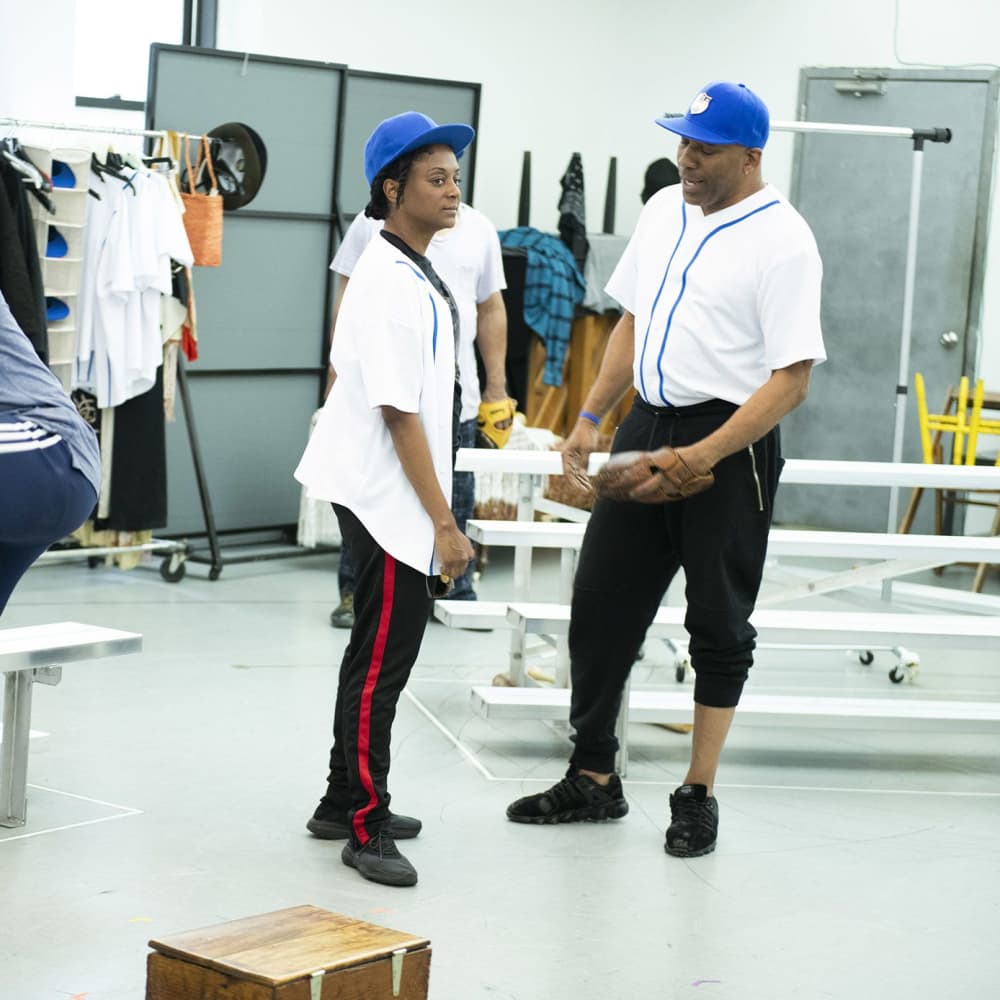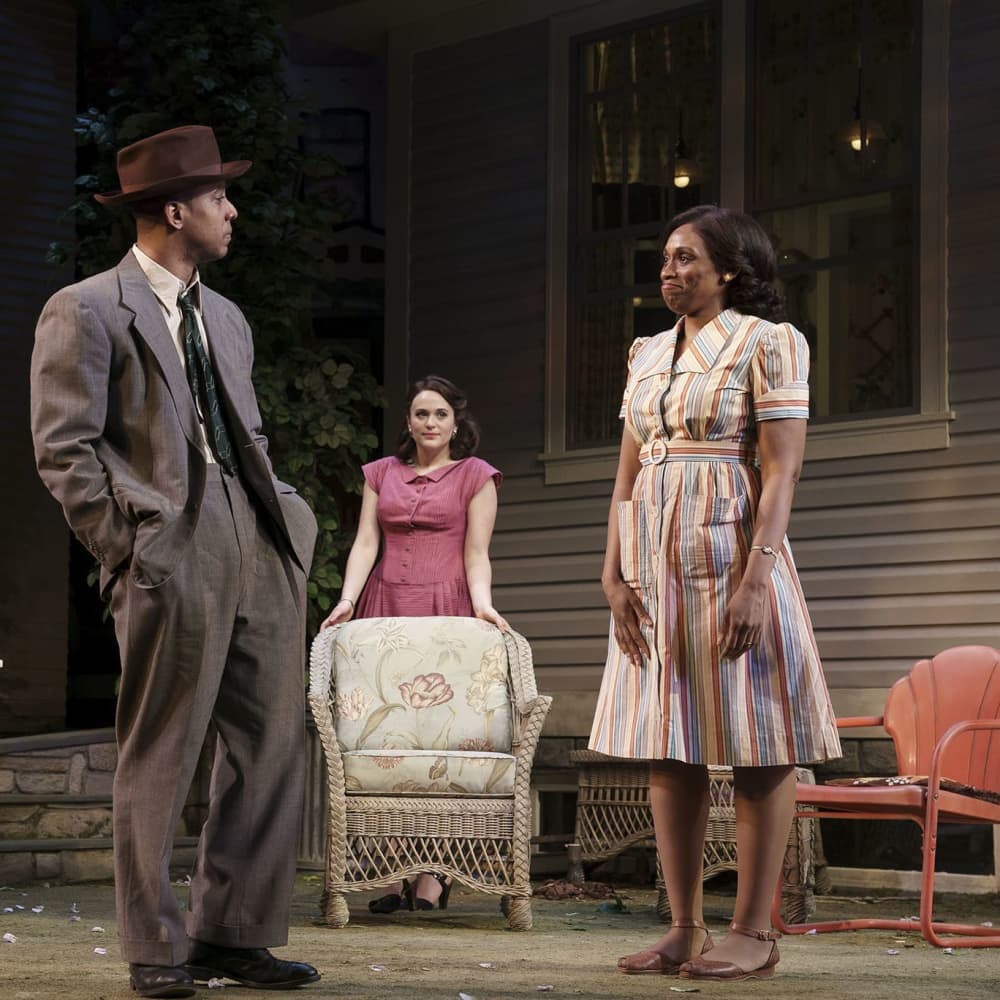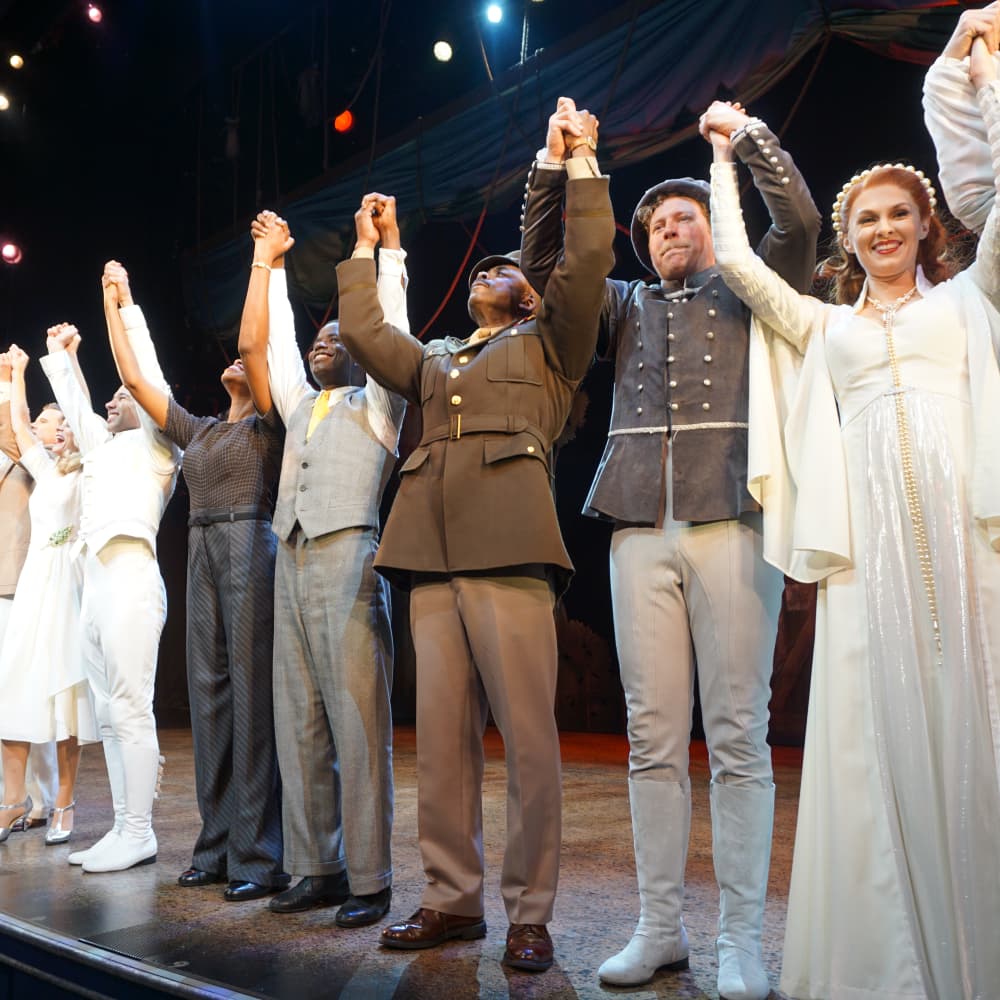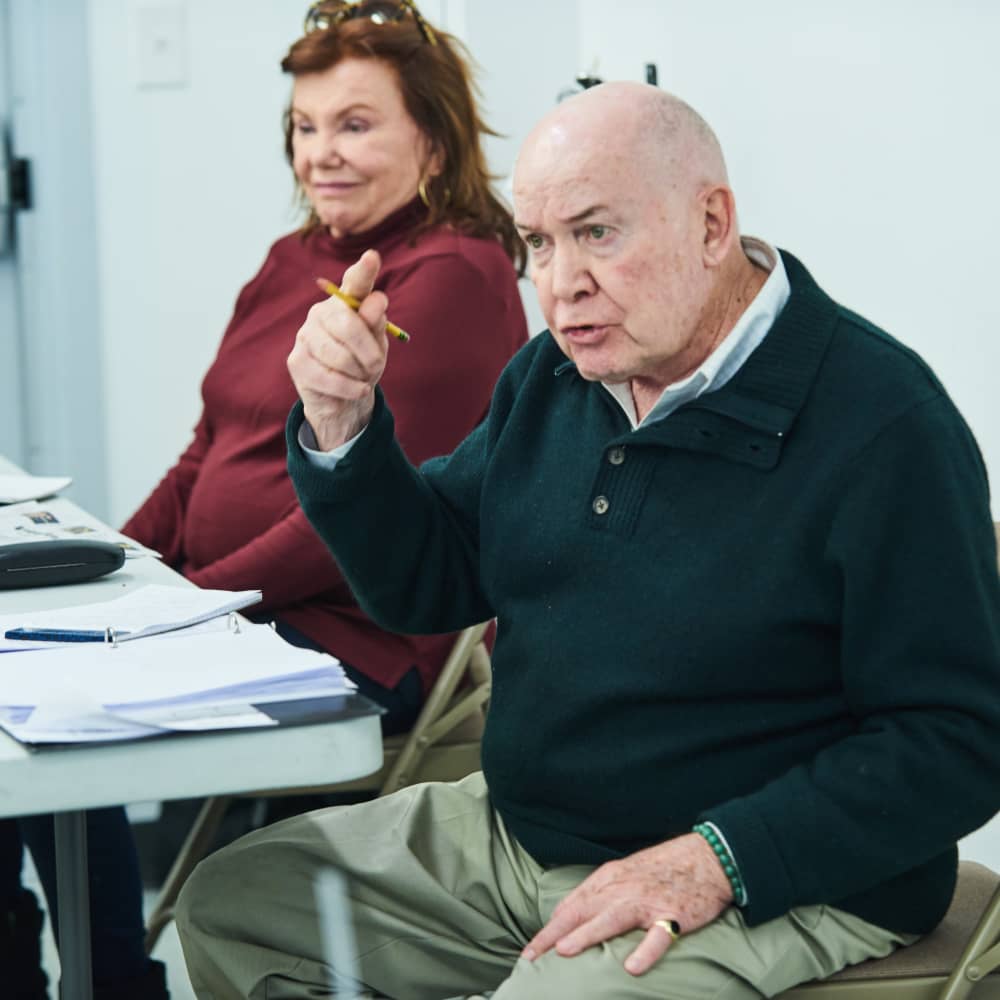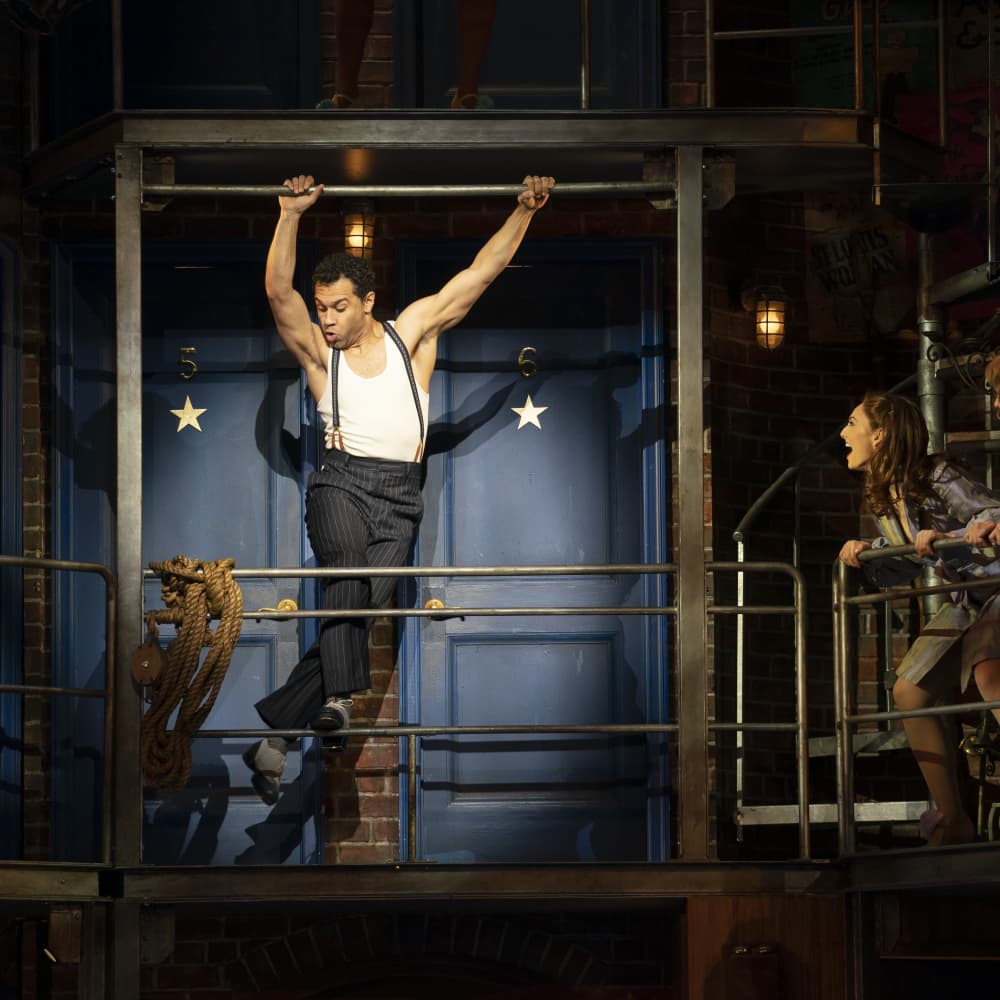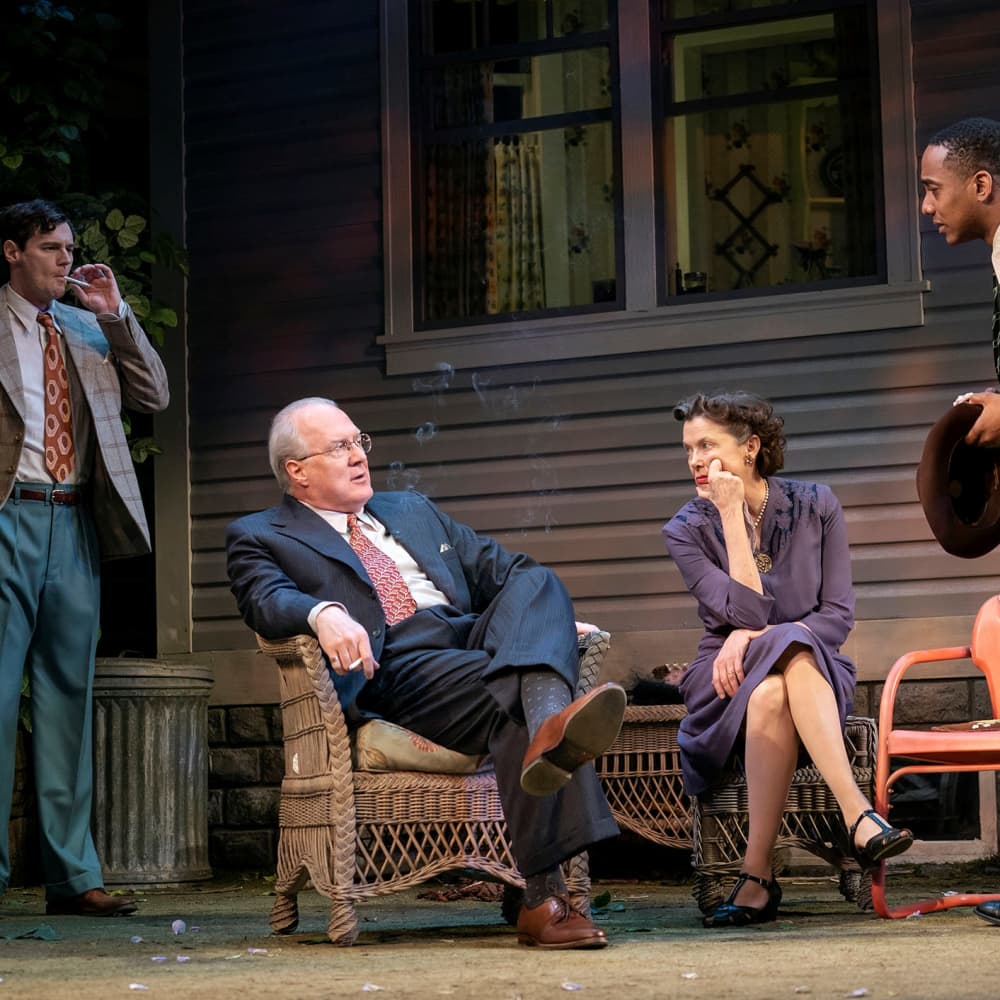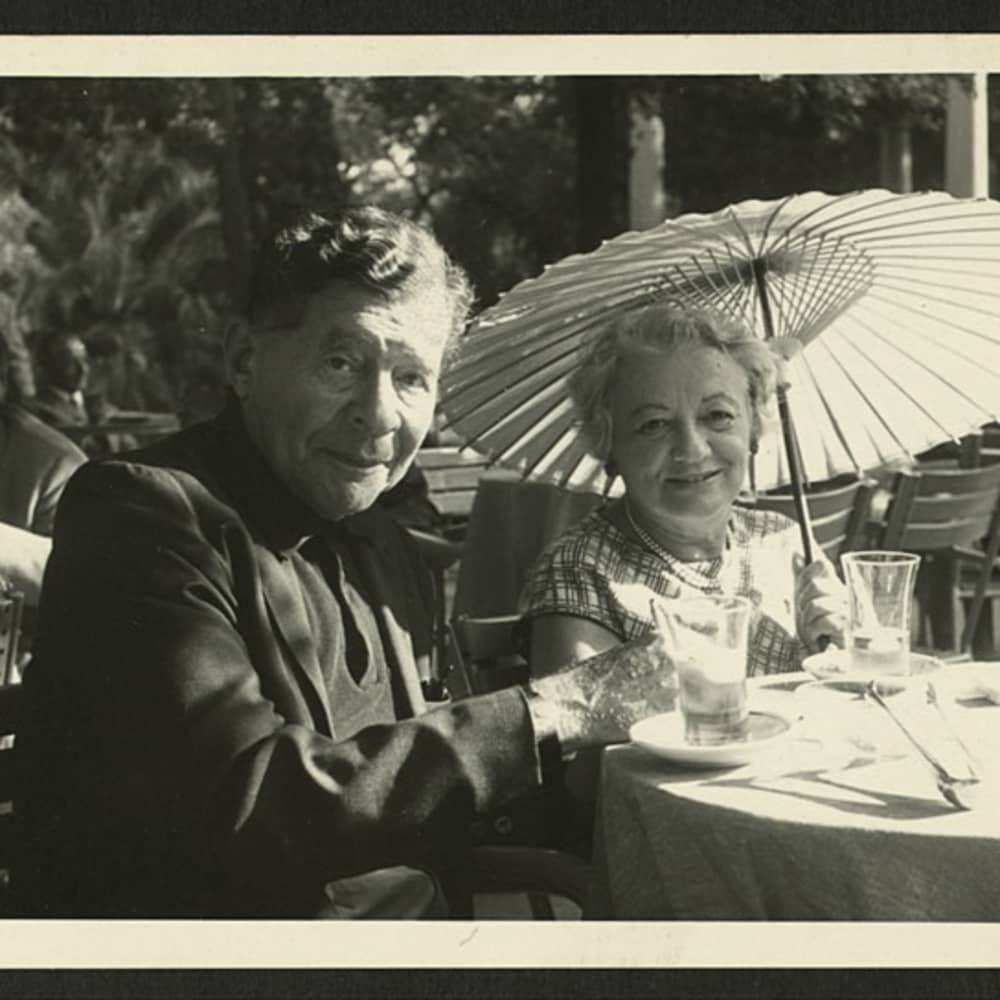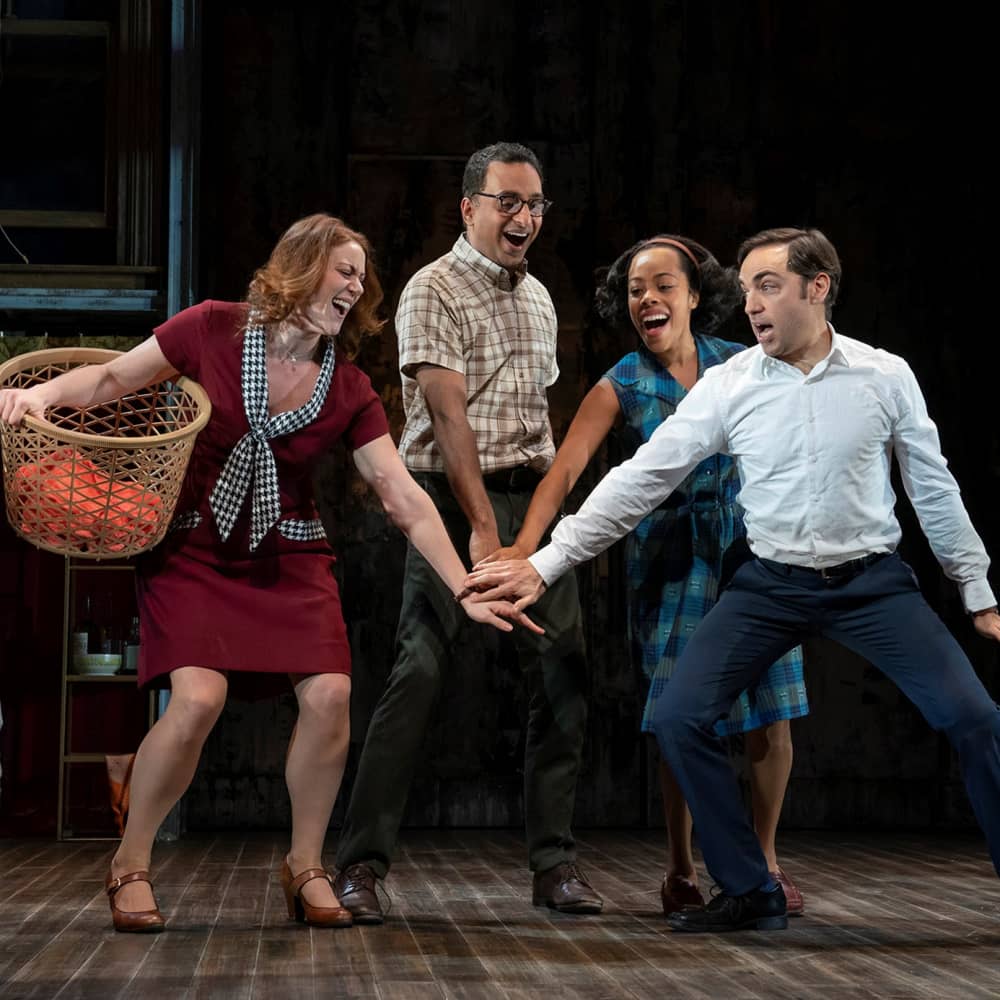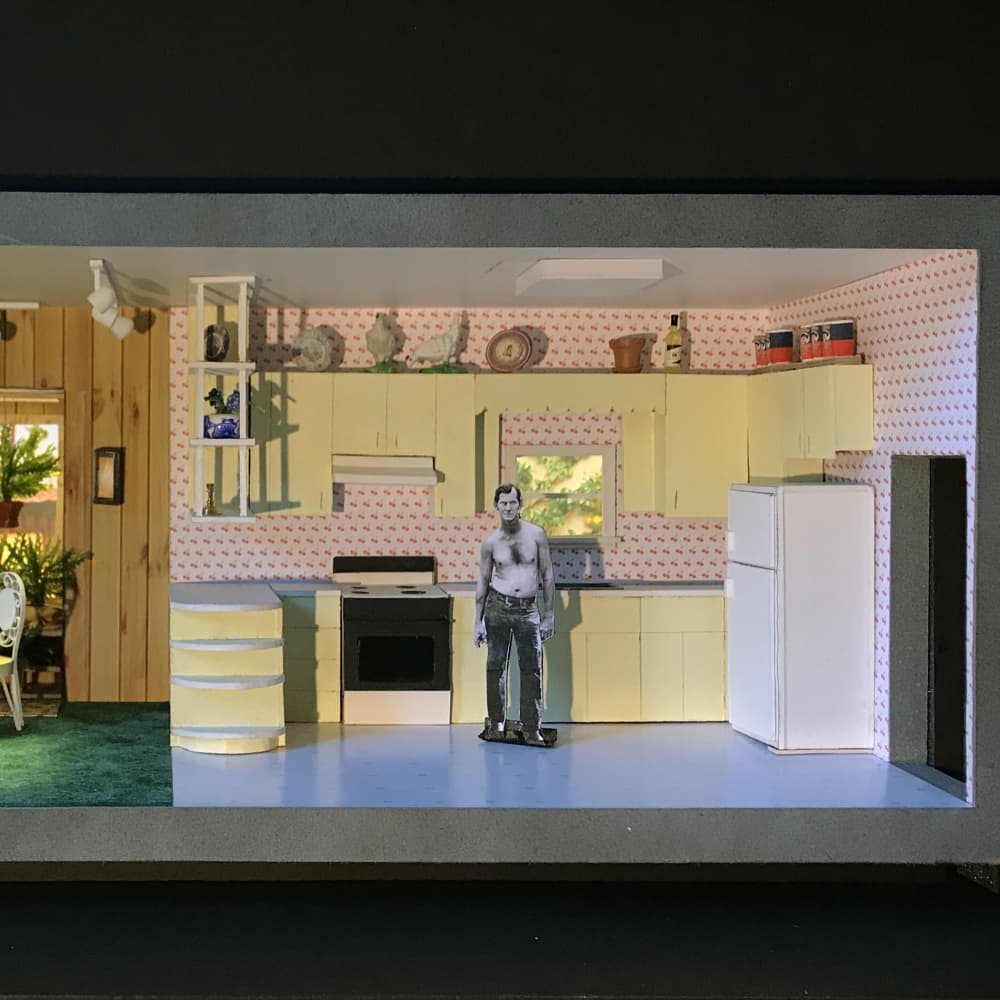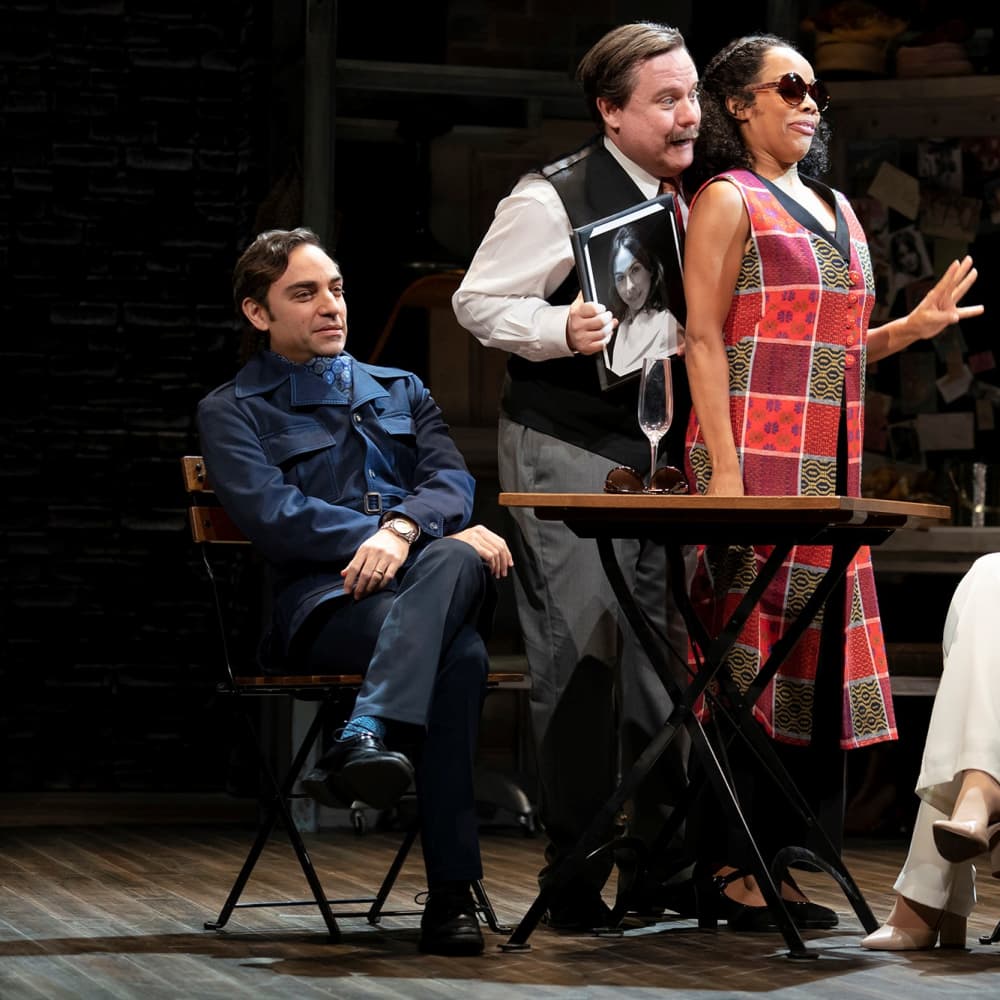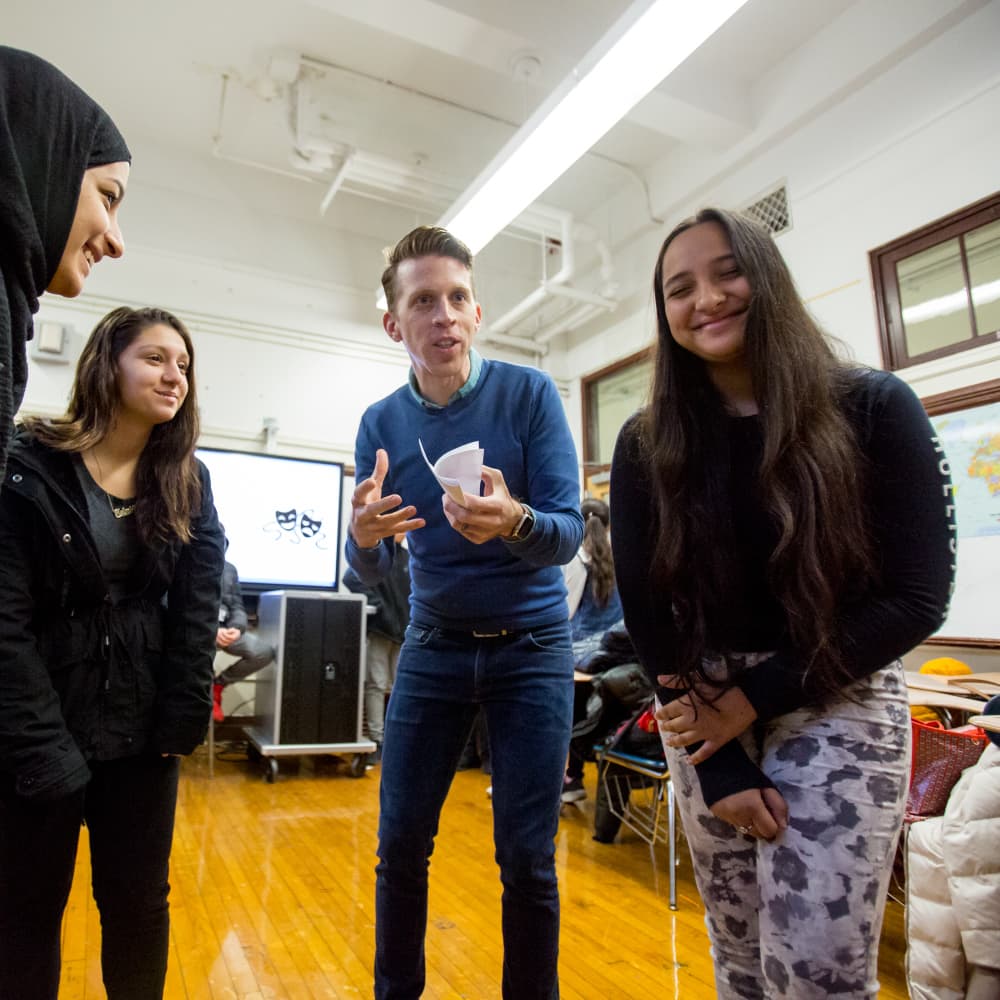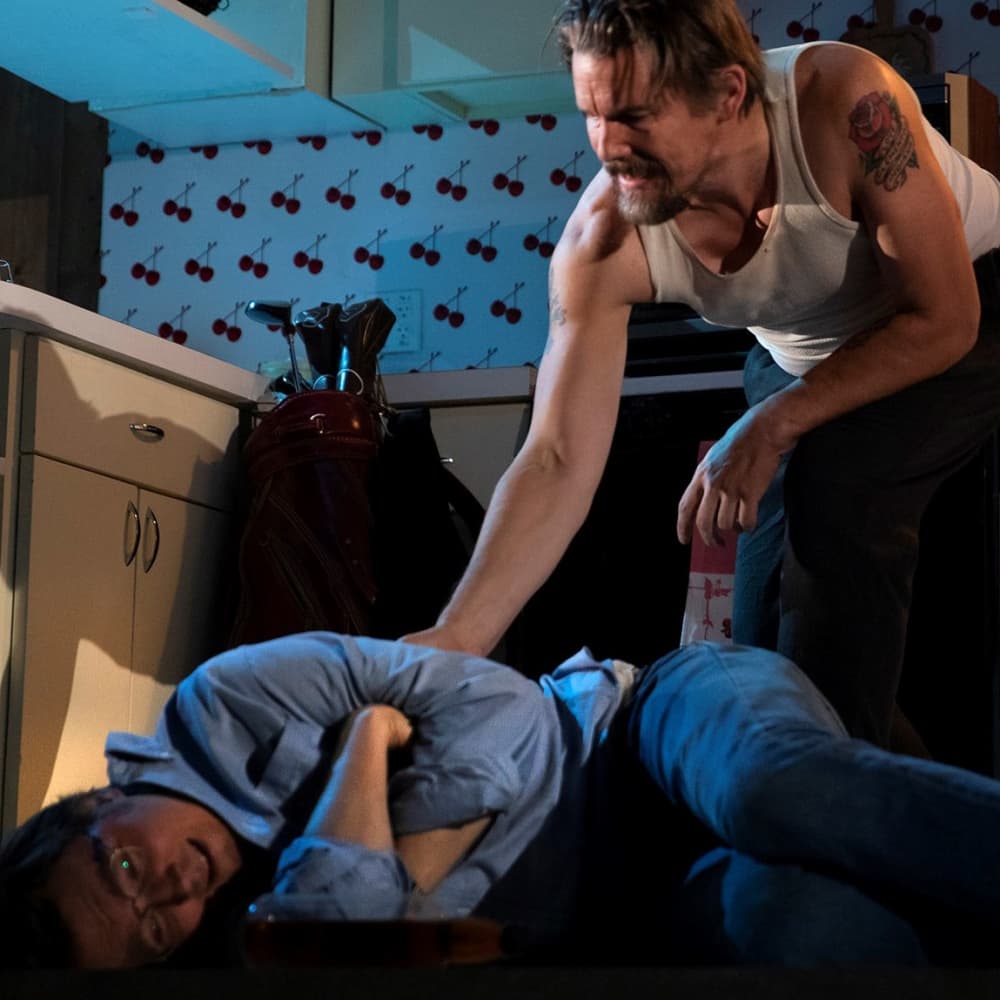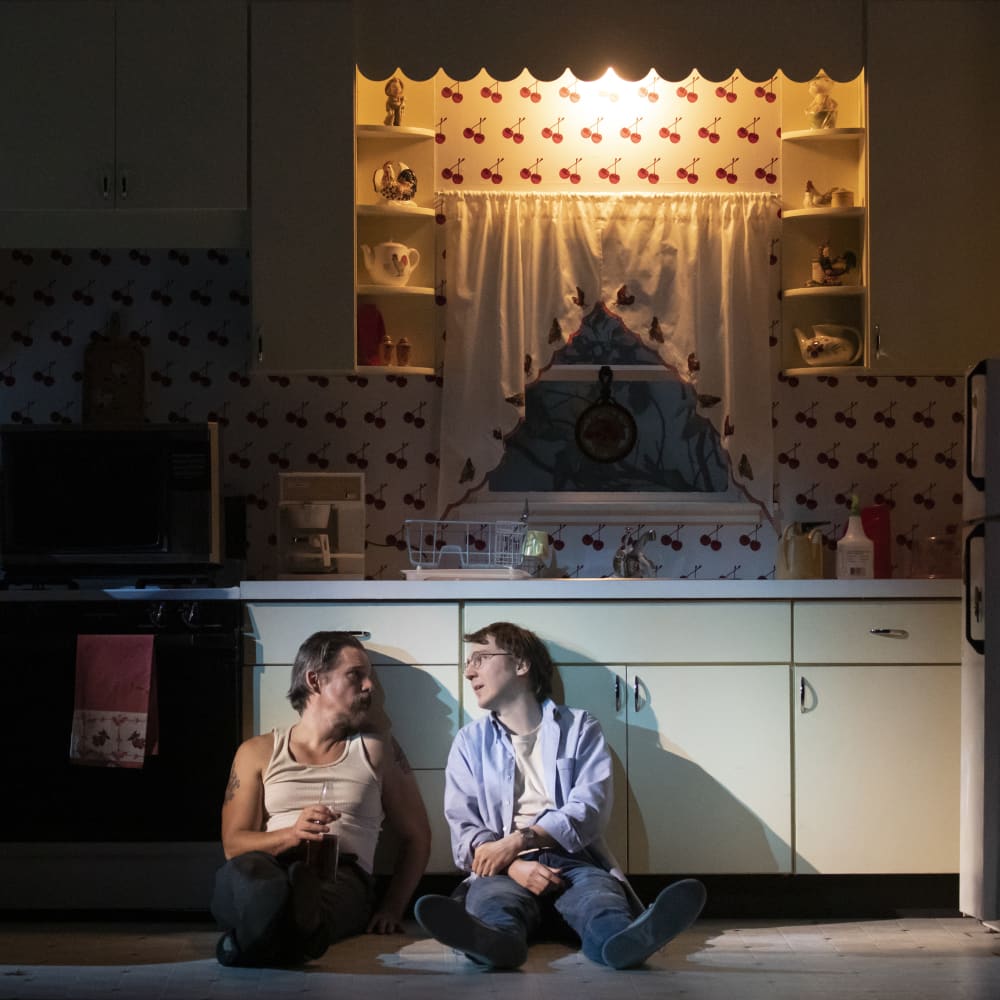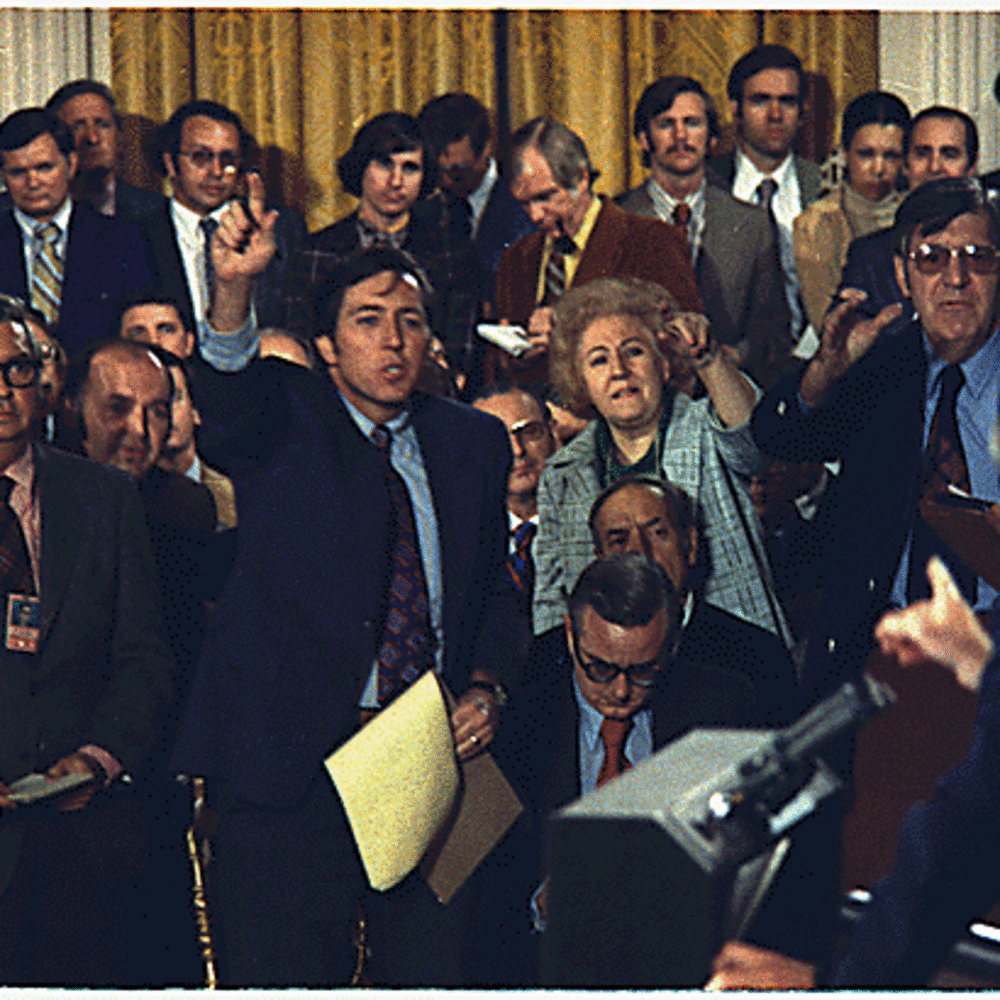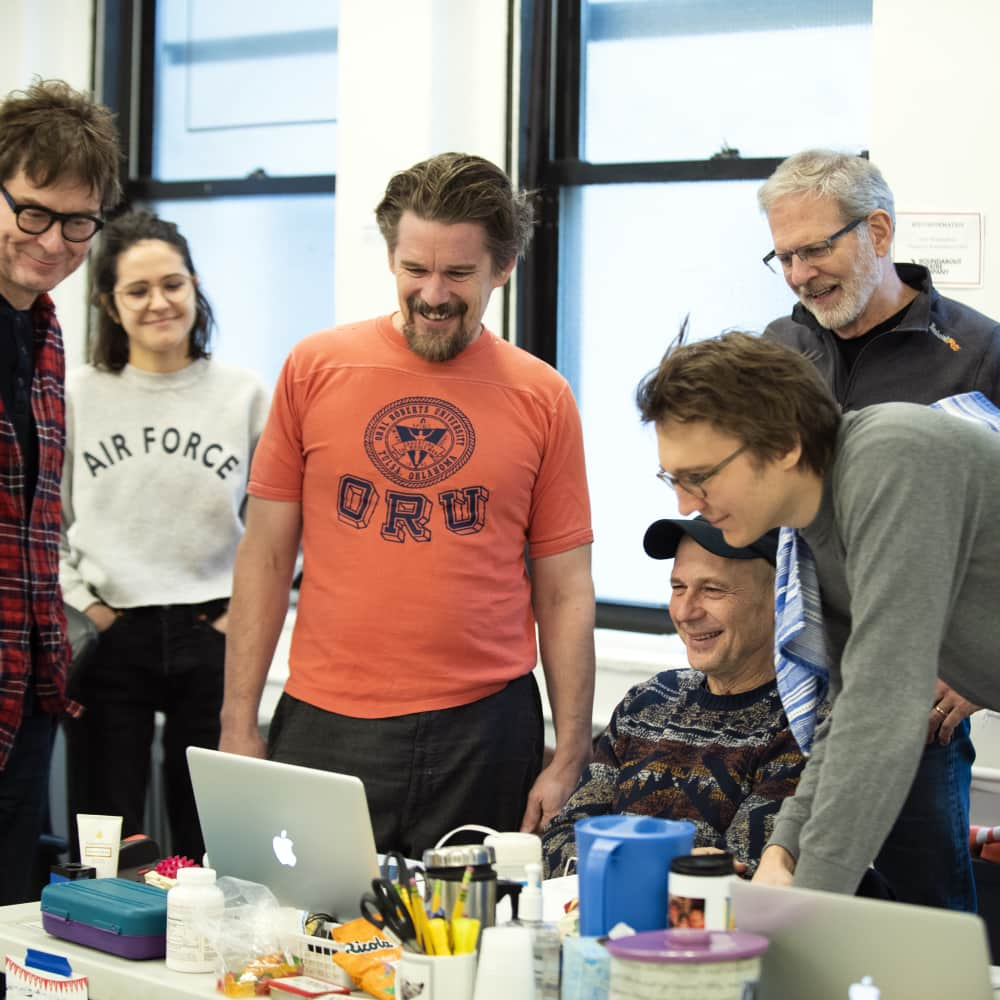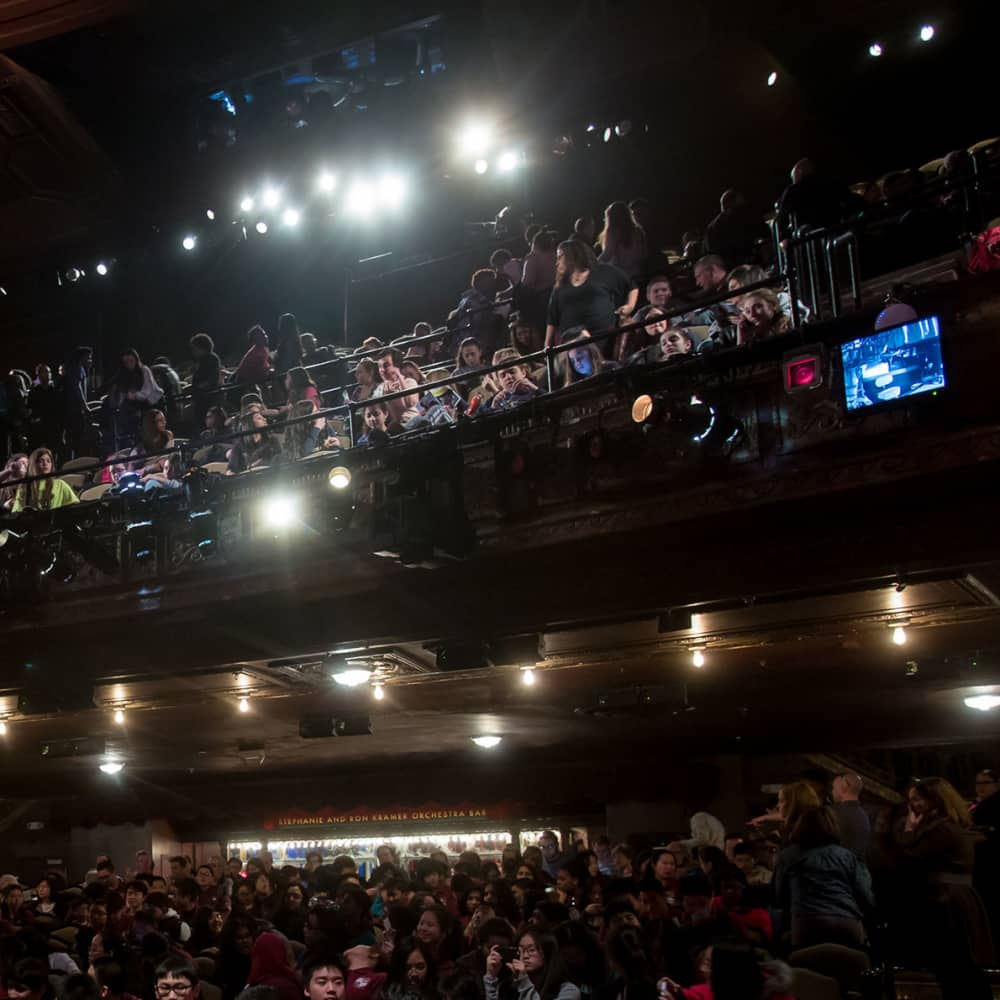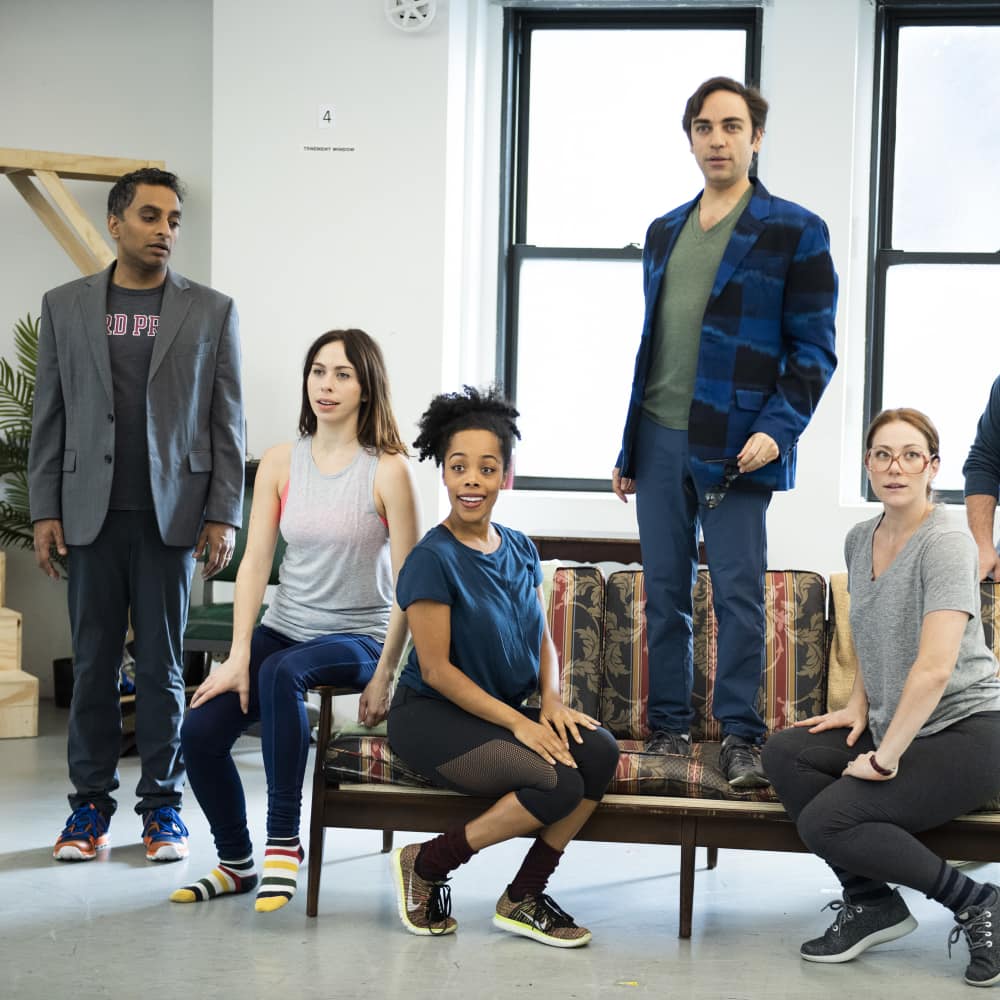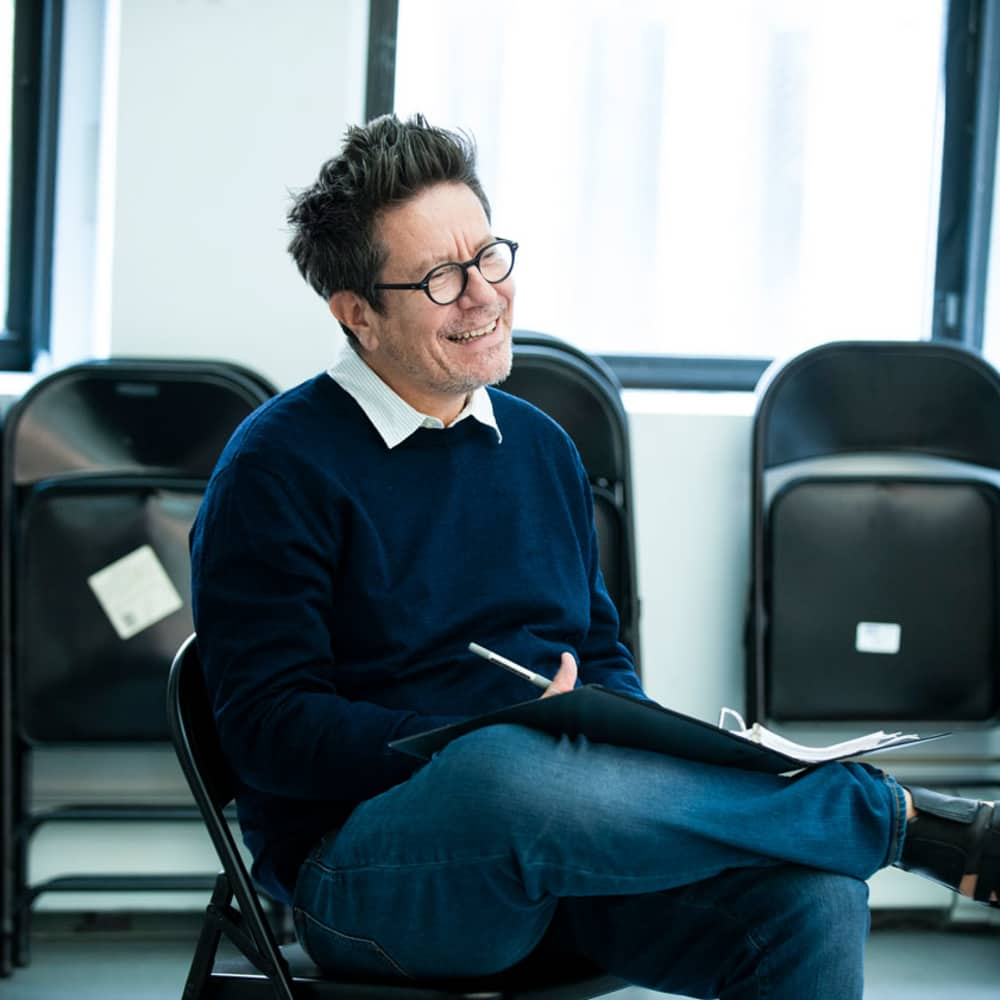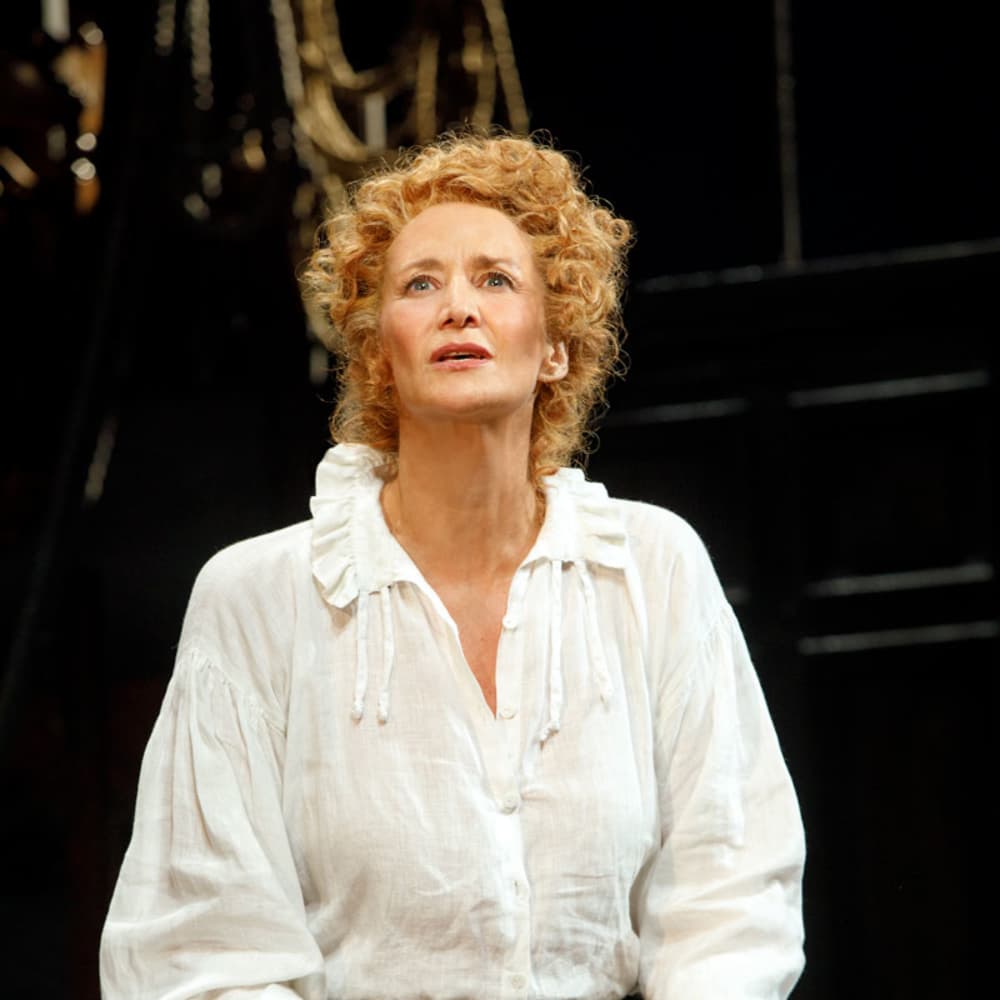True West:
Interview with Gary Wilmes
Posted on: February 7, 2019
Education Dramaturg Ted Sod spoke to actor Gary Wilmes about taking on the role of Saul Klimmer in True West.
Ted Sod: Why did you choose to play the role of Saul Kimmer in Sam Shepard’s True West? What do you think the play is about?
Gary Wilmes: When I was in college, I got my hands on a VHS copy of the 1982 Steppenwolf recording of True West. Until then acting was something I certainly gravitated toward, but watching that production emboldened any inclination I had to make a career of it. The performances were fearless, visceral, and raw in a way I hadn’t seen before. Like wild animals forced to inhabit the same cage, it was as if the characters in a Sam Shepard play required a certain behavioral approach that other plays didn’t. I’ve performed in countless plays since then, but none were written by Shepard. When Roundabout offered me the chance play Saul, I didn’t hesitate. If you had asked me what I thought the play was about back then, I might have said it’s about two brothers who embody the Hollywood writer’s struggle and the deadening effects Hollywood has on them. But if I had to take a swing at it today, I’d say it’s more of an exploration of Western civilization, our shared heritage and shared culture and the possibility that it could be wrecked by the actions of simple men.
TS: What kind of preparation or research do you have to do in order to play Saul? Please give us some insight into your process as an actor.
GW: To prepare for rehearsal, I try to get my hands on as much material by and about the playwright as I can. I like to read the play in fits and starts, on and off, on the subway or over lunch — whenever I get a free moment. I prefer to just simmer in it, so as not to make any decisions or choices that might backfire before I get into rehearsal. The same goes for learning lines. It’s good to be familiar, but I don’t like to have them memorized until rehearsals begin when I’m face-to-face with the cast. I want to be as open-minded as possible going into rehearsal, so that my choices are informed by the other actors and the director as well.
TS: How is this character relevant to you? I realize the rehearsal process hasn’t begun yet, but can you share with us some of your thoughts about the type of person Saul is? What do you find most challenging/exciting about this role?
GW: Producers are risk takers by nature. So, my gut reaction is that Saul is a bit of a gambler. What’s curious is that we find him not in Hollywood proper but some 40 miles east of Los Angeles in an uncelebrated writer’s mother’s suburban home with hopes of hitting a jackpot. And then within 24 hours he’s up at the crack of dawn making bets on the golf course with some drifter he’s met the day before. Playing detective early on when you’re building a character is helpful. The challenge is to reach some sort of authenticity by the time you get to the stage.
TS: Have you ever met any producers like Saul? Do you play golf? It seems to be a pastime that producer types in L.A. enjoy – do you find that aspect of the storytelling valuable to your process?
GW: First off, producers should be admired immensely. Without them, I wouldn’t be employed. Thank you very much. And every great work, be it play, movie, concert, etcetera, was produced by someone. Without them where would we be? Remember the Dark Ages? Of course, you don’t. Thank you, producers! Fortunately, the producers with whom I’ve worked have been intelligent, generous, even visionary, but lately we’ve been made aware that some may have a darker side and others are just outright monsters. Where Saul lives on the producer spectrum, I’m not quite certain. It all depends on what story we decide to tell. But as someone who plays golf and is pretty much a “Sunday Duffer” like Saul, I can tell you that golf isn’t the only thing that gets played on a golf course. My mom and I took up the sport when I was around 13. She had decided to go into business for herself, and when she discovered that the golf course was where business deals get made, she was determined not to be left out of the action. I’m sure L.A. golf is no different.
TS: Can you tell us some of your preliminary thoughts about Saul’s decision to abandon Austin in favor of his less dependable brother, Lee?
GW: Saul's gamble is if he finds the right story, it’ll land him a movie deal with a big Hollywood Studio. And he’s betting on Austin’s talent as a writer to provide him that winning ticket. That is until he hears Lee’s story. Now let’s imagine that Austin and Lee are race horses instead. And we’re at the race track perusing the daily racing form. Stay with me here. On paper, Austin looks like a safe bet. He’s a fine horse, well groomed, has a decent track record and by all accounts is the odds-on favorite to win at 2/1. But as we’re walking up to the betting window, a whinny catches our ear. We look over and see a horse on its way to the starting gate. We notice that it’s attentive and observant without being unsettled. But more importantly, it has, what’s called by anyone who knows horses, but can’t put into words, “The Look.” We refer back to our racing form. Lee is an unknown, he has no record, and he’s a dark horse whose odds are 19/1. The return on those odds for the same investment would be much higher and potentially a bigger payday for Saul.
TS: What do you look for from a director when rehearsing a role?
GW: Trust is essential. Getting on stage in front of an audience of people you don’t know and speaking lines isn’t easy. And allowing myself to be vulnerable in that setting is even harder. And being vulnerable is a requirement of any good actor. Knowing the director has your best interest at heart is vital. The last thing I want to overhear after a show is, “That guy was terrible!”
TS: Where were you born and educated? Where did you get your training? What motivated you to become an actor?
GW: I was born and raised just outside of Chicago. My first taste of things to come began in the 5th grade when I got cast to play the lead role in Tom Sawyer. Perhaps it says more about what I was like as a kid than it did about my acting talent. But I took to it in a big way. By the time I finished high school in Chicago, Steppenwolf Theatre Company, known for their intense, highly physical, inventive productions, had achieved international fame. Its core ensemble members had met at Illinois State University, which is where I ended up. After four years of required studying, I was invited to attend what was known as “Animals Class.” The idea was that you chose an animal and behaved like that animal for an entire semester until your final exam. At the exam you were asked to confront the same imaginary species as yours and kill it. You were to be judged by your peers. If they didn’t unanimously agree, you’d fail the class. When I got to Chicago after graduation, my hopes of working at Steppenwolf were quashed. There were just too many actors my age and not enough roles to go around. I did, however, land my first job in their new 500-seat theatre. As a bartender. So, to keep myself engaged and creative, a few friends and I started our own theatre company on the South Side of Chicago. We rented a 2000-square-foot loft in an old DeSoto car dealership and converted it into a living space and a theatre. We all had day jobs to make ends meet, and then we’d rehearse and perform at night. Eventually, many years later, while living in New York, I got my chance to act at Steppenwolf, and it would prove to be my big break.
TS: Public school kids will read this interview and will want to know what it takes to be a successful actor — what advice can you give young people who want to act?
GW: When you’re a kid, you enjoy playing. You explore. You make believe. The best and most successful actors I’ve worked with never lose their sense of playfulness. We do call it a play after all. My firm belief is that if you enjoy what you do and keep doing it, the work will find you.
True West is now playing the at the American Airlines Theatre through March 17th. For tickets, please visit roundabouttheatre.org.

